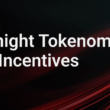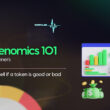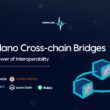Governance is one of the pillars that makes Cardano strong. Its development is planned in the Voltaire era, one of the 5 eras in Cardano’s roadmap.
The Voltaire era will provide the final pieces needed for the Cardano network to become a self-sufficient and truly decentralized system. It needs not only the distributed infrastructure introduced during the Shelley era, but also the ability to maintain and improve itself over time in a decentralized manner. Network participants will be able to submit proposals for Cardano enhancements to be voted on.
The Catalyst project is the beginning of the Voltaire era. It is presented as the first form of decentralized governance, with its off-chain voting model, allowing the community to elect proposals for application development in the Cardano ecosystem, where participation is open to any token holder with a minimum funding (currently 500 ADAs), even if they do not have technical capabilities as a developer.
As of today, Catalyst has grown considerably:
- FUND1: 56 proposals- pilot test
- FUND2: 78 proposals – 12 funded. Participation of 23,996 votes
- FUND3: 190 proposals – 21 funded. Participation of 120,363 votes
- FUND4: 339 proposals- 53 funded. Participation of 216,749 votes
- FUND5: 323 proposals- 70 funded. Participation of 250,304 votes
- FUND6: 814 proposals – in progress-.
If you want to know more about governance and its different models, at the end there is a link to an article I have written previously (1).
The Catalyst School
Learning about Catalyst, how it works, its requirements and the criteria for success depending on the role, is not so easy, because information and resources are not available in a user-friendly way.
Nor is there a platform that brings together those who are learning about Catalyst, whether novices or veterans, so that they can exchange knowledge and help each other.
The proposed Catalyst School is a platform to enhance the impact of Catalyst as a whole by improving the contribution of all its different stakeholders and roles.
It helps to enhance the skills of members along the way, in whatever way they choose to participate in Catalyst, whether as a Proposer, Community Advisor, Veteran Community Advisor, or in no specific role within the process, and thus make Catalyst flourish and reach its full potential.
Each person prefers a different learning method, and for this reason, Catalyst School proposes:
- Live sessions and workshops.
- 1-on-1 and group support in many different languages.
- Interactive website.
- Other Catalyst-related workshops.
The Catalyst School has already been helping the community since the beginning of FUND6, in order to receive feedback from the community and improve teaching methods and content to achieve the highest Return on Intent.
Currently, the main topics covered by the Catalyst School are:
- Introduction to Catalyst
- How to propose in Catalyst
- How to become a Community Advisor
- How to become a Veteran Community Advisor
They have already held several sessions on the main topics described above and inducted over 200 new Catalyst members. Some of these sessions were recorded and are now available on the YouTube channel (link at the end of the article).
Catalyst School already has partnerships with:
- Gimbalabs ( https://gimbalabs.com )
- AMA ( https://wadalliance.org )
- Orient City Hall ( https://discord.gg/4xnCdV6Qrn )
- Community Advisor Tutorial ( http://app.ideascale.com/t/UM5UZBiSh )
Roadmap
This proposal aims to provide the School sessions, workshops, 1-on-1/group support (in English) and a basic website. When funded, all of these services will be provided over the next 2 Funds (Funds 7 and 8).
School Sessions and workshops are planned to be hosted during After Town Halls (every Wednesday) and during Swarm Sessions (every Saturday).
The goal is to offer 20 sessions in each FUND, following the Project Catalyst schedule.
– Week 1 – Insight Sharing Phase:
- 2 x Introduction to Catalyst (After Town Hall and Swarm Session)
– Week 2 – Proposal Submission Phase:
- 2 x Introduction to Catalyst (After Town Hall and Swarm Session)
- 2 x Proposing in Catalyst (After Town Hall and Swarm Session)
– Week 3 – Proposal Refinement Phase:
- 2 x Introduction to Catalyst (After Town Hall and Swarm Session)
- 2 x Proposing in Catalyst (After Town Hall and Swarm Session)
– Week 4 – Proposal Finalize Phase:
- 1 x Introduction to Catalyst (After Town Hall)
- 2 x How to be a Community Advisor (After Town Hall and Swarm Session)
– Week 5 – Proposal Assessment Phase:
- 1 x Introduction to Catalyst (After Town Hall)
- 2 x How to be a Community Advisor (After Town Hall and Swarm Session)
- 2 x How to be a Veteran Community Advisor (After Town Hall and Swarm Session)
– Week 6 – Assessments Review Phase:
- 2 x How to be a Veteran Community Advisor (After Town Hall and Swarm Session)
In addition, offer 30 1-on-1 or group support sessions in each FUND (7 and 8), totaling 60 sessions, each lasting 30 minutes.
Success Metrics:
Follow-up of objectives will be measured by:
- Total number of community members who get involved with the Catalyst School.
- Number of proposers joining the sessions and workshops.
- Number of CAs joining the sessions and workshops.
- Number of vCAs joining the sessions and workshops.
- Number of 1-to-1 supports provided to community members.
- Number of new referees
- Number of new voters
The Team
It is composed of a group of 11 people from diverse backgrounds, but with two common passions: Catalyst and education.
- Alejo Escrivá: Product & Growth Marketing Consultor, Business Analytics MBA, Industrial Designer, and Entrepreneur with 8+ years shaping lovable products and communities. Founder @Cardano-Hispano.
- Dominik Tilman: Community Advisor, Funded Proposer, Catalyst Swarm Core Member, Business Background.
- Felix Weber: enthusiast & community networker, T&M’s elected representative for the 1st Catalyst Circle, Co-Founder of Catalyst Swarm, Co-Initiator & Coordinator of the Eastern Hemisphere Town Hall, Initiator of the Catalyst Alliance.
- George Lovegrove: Web / Mobile Developer, active community member and projectcatalyst.org creator that helps improve Catalyst resources and tooling.
- Kerstin Nobel: Digital Education Researcher, University Lecturer for Digital Education in Germany and Luxembourg, Academic Peer-Reviewer, Community Advisor (CA).
- Lucio Baglione: Web / Mobile Developer with 9+ years of experience. CA and vCA, Co-Creator of the Community Tools (Proposer/CA/vCA/Voter Tools).
- Raz Samsudin: Interdisciplinary Trained Academic, Educator and Mentor, sustainability professional with 13+ years of multi sectoral experience, experienced curriculum and course designer, Independent Researcher and Writer, Proposal Mentor, UN SDG coordinator/education, curriculum advisor – WADA, Co-Founder – Sustainable ADA, education and sustainability lead – Global Policy House, Founder and Publishing Editor – Bona Fide Info.
- Simon Fleck: Catalyst Swarm Core Member, Cardano enthusiast since 2018, IT background.
- Stefan Montalbetti: Certified Educator (Canadian B. Ed.), Facilitator (7+ years of experience), Disruptor – Member of the Catalyst Swarm with a keen desire to unlock the potential of individuals and bridge gaps to that potential. Foundations: Empathy, Inclusion, Communication, and Critical & Creative Thinking.
- Stephen Whitenstall: has 30 years’ experience in organizing academic, community and business projects. He develops, maintains documentation and provides technical project management support for Catalyst Swarm. As QA-DAO he tracks and documents the Catalyst Circle and maintains ‘Ekphrasis’ a repository of academic content from across the Cardano community.
- Tevo Saks: enthusiast on documenting systems and procedures that will achieve specific goals in an efficient way. Active participant in Catalyst since Fund 1, Catalyst Swarm core member, experienced Proposer and Veteran Community Advisor.
- Victor Corcino: Veteran Community Advisor (vCA), Proposal Mentor, CAs’ elected representative for the 1st Catalyst Circle, Co-Creator of the Community Tools (Proposer/CA/vCA/Voter Tools), Catalyst Swarm Core Member, engineering/science/developer and ‘hands-on’ teaching background.
The Budget
The 6-month budget covers:
Sessions and workshops
- 20 events per Fund, 2 Fund: total of 40 events
- 2 hours per event
- Host: USD 60/hour (main presenter)
- Co-host: USD 30/hour (moderating the room, answering the chat, keeping track of statistics)
Total: USD 7,200
1-to-1 and group support
- 30 supports per Fund, 2 Fund: total of 60 supports
- 30 mins per support session
- Cost: USD 30/support
Total: USD 1,800
Learning content creation
- Sessions and workshops presentation slides
- Learning content to be distributed via our platforms
- Updating the content according to changes in Catalyst
Total: USD 2,000
Basic Website
- Creating a basic website to serve as a landing page and to host the main information about the Catalyst School
Total: USD 500
Marketing
- Reaching out to potential students via different channels
- Managing the community platforms
Total: USD 2,000
Project Management
- Scheduling events based on Community interest
- Coordinating hosts, co-hosts (scheduling, backup plan)
- Coordinating with Community events (Swarm Session, After Town Halls)
- Coordinating with partners (creating bridges, realizing synergies)
- Controlling the project costs
- Managing YouTube channel
- Project documentation and housekeeping
Total: USD 4,000
Requested funds: USD 17,500
In this Gitbook link are listed the 7 proposals for this FUND6 related to the Catalyst School, plus the Fund7 challenge setting.
Website: https://linktr.ee/CatalystSchool
YouTube channel: The Catalyst School
You can see the original proposal at Catalyst.
(1) Decentralized Autonomous Organization (DAO): The Brief History, Challenges, and Lessons Learned










